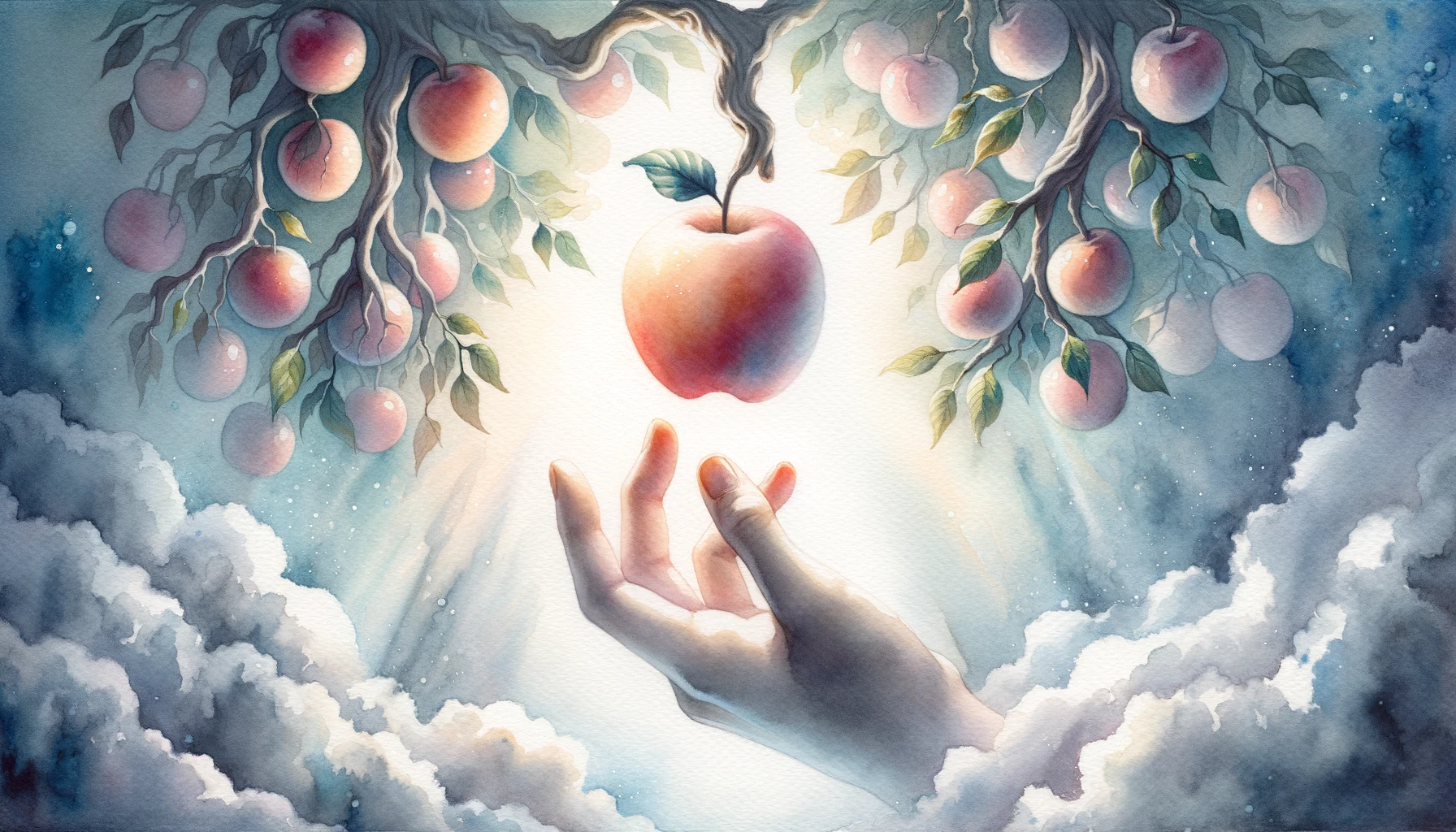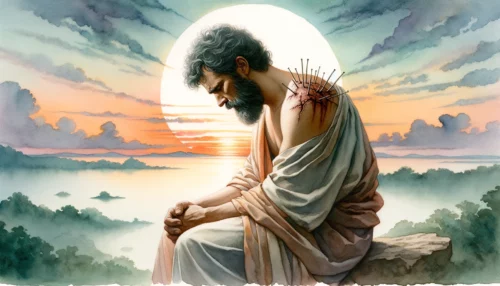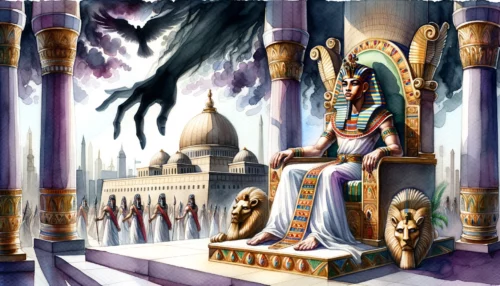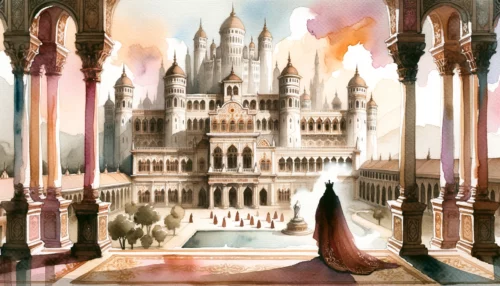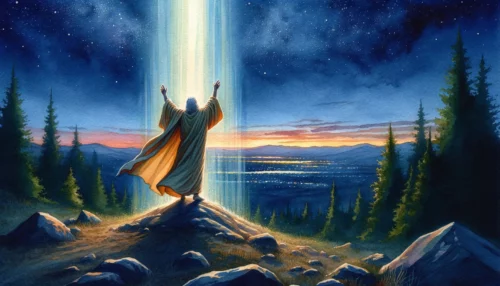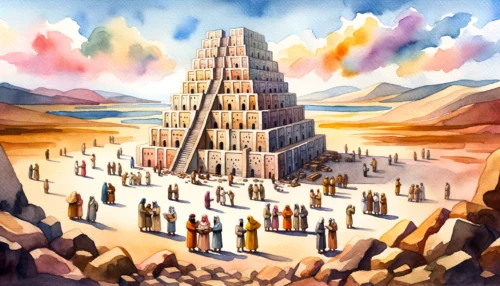The account of Adam and Eve in the Garden of Eden is a fundamental narrative in the Christian tradition, presenting themes of temptation, free will, and sin. This story’s focal point is the Tree of Knowledge of Good and Evil, whose fruit God forbade Adam and Eve from eating. However, this leads to the question that has challenged theologians for centuries – if God is omniscient and omnipotent, why would He place a tree that could lead to humanity’s fall in the midst of Eden? Is it an act of divine paradox, or does it hold deeper spiritual truths about God’s character and His intentions for humanity? In this article, we aim to explore these questions with thoroughness and reverence.
The Role of Free Will in God’s Creation
Free will, as per the Christian belief, is a fundamental gift bestowed upon humanity by God. This gift plays a significant role in the story of creation, right from Genesis. When God created Adam and Eve, He provided them with the ability to make decisions, to choose between obedience and disobedience, an aspect that later became pivotal in the event at the Tree of Knowledge.
The Christian interpretation suggests that God, in His infinite wisdom and love, wanted humanity to love Him out of free choice and not out of obligation or fear. Love that is forced or mandated lacks authenticity and true value. Hence, free will serves as a channel for genuine, heartfelt love towards God, love that is chosen rather than imposed.
The narrative of Adam and Eve’s temptation illustrates this concept. God, knowing the future, was aware that they would be tempted by the serpent, symbolizing evil (Genesis 3:1-6). Despite this knowledge, He allowed them the freedom to choose, underlining the profound importance of free will in His plan.
Yet, this gift of free will does not exist in a vacuum. It comes with responsibility and consequences. This notion is evident when Adam and Eve exercised their free will, ate from the Tree of Knowledge, and faced the consequences of their actions (Genesis 3:16-24).
Free will in the Christian faith is the gift from God that allows us to choose our actions. This gift underscores the notion of love as a choice, not an obligation, affirming our authentic and intentional love towards God. The Genesis narrative showcases this concept, where Adam and Eve, despite God’s warning, exercise their free will by choosing to eat from the Tree of Knowledge. This choice leads to significant consequences, indicating that free will carries with it a responsibility for our actions and their outcomes.
The Significance of the Tree of Knowledge in Genesis
Genesis narrates that God placed the Tree of Knowledge of Good and Evil in the Garden of Eden (Genesis 2:9). Yet, He explicitly warned Adam and Eve against eating its fruit (Genesis 2:17). This tree, imbued with symbolic and spiritual meaning, signifies a crucial part of the narrative, embodying the human capacity to discern right from wrong.
The Tree of Knowledge, in the Christian understanding, serves as an emblem of moral awareness and ethical distinction. Eating from this tree wasn’t inherently evil; rather, the disobedience to God’s command was the sinful act. It underscores the understanding that knowledge, in and of itself, isn’t wrong, but the manner and intention behind its acquisition can make it so.
While the Tree of Life, also present in the Garden, symbolizes eternal life, the Tree of Knowledge represents the introduction of moral discernment into human existence. The bite from its fruit marked the end of an innocent, unblemished existence and the advent of an era marked by ethical decision-making, responsibility, and, subsequently, the consequence of sin (Genesis 3:22).
It was only after eating the fruit from the Tree of Knowledge that Adam and Eve became aware of their nakedness (Genesis 3:7). This awareness reflects the birth of self-consciousness and a newfound understanding of shame and modesty, further solidifying the tree’s symbolic role in the narrative.
In Genesis, the Tree of Knowledge of Good and Evil stands as a symbol of moral understanding and ethical awareness. It signifies the ability to discern right from wrong. The sin was not in eating the fruit per se, but in the act of disobedience towards God. The Tree, in contrast to the Tree of Life, marks the end of innocence and the beginning of a life influenced by ethical decisions and their consequences. Also, it signifies the dawn of self-consciousness, represented by Adam and Eve’s awareness of their nakedness after eating the fruit.
The Greater Plan: Understanding God’s Purpose in the Midst of the Fall
There is a common question asked about the narrative of Genesis: If God, being omniscient, knew that Adam and Eve would sin by eating from the Tree of Knowledge, why did He create such a situation? To comprehend this, we need to consider God’s broader plan and His character as revealed in the Bible.
God’s omniscience does not negate human free will, as discussed earlier. His knowledge of future events does not mean He causes them. Thus, God’s decision to place the Tree of Knowledge in the Garden reflects His respect for human freedom (Genesis 2:8-9).
Another significant aspect of the narrative is God’s justice and mercy. After Adam and Eve sinned, God pronounced judgments upon them. But within those judgments, there was also mercy. Despite their disobedience, God clothed Adam and Eve with skins, illustrating His mercy amidst justice (Genesis 3:21).
God’s plan also encompasses the idea of redemption, which is paramount in Christian understanding. The fall of man was not the end of the story. In fact, the entire narrative of the Bible following Genesis can be seen as a grand story of redemption, culminating in the work of Jesus Christ. From Genesis onwards, there is a promise of a Saviour, the seed of the woman, who would bruise the serpent’s head (Genesis 3:15). This prophecy is widely understood as the first proclamation of the Gospel, indicating God’s plan of redemption through Christ.
God’s omniscience and the existence of the Tree of Knowledge reveal His respect for human free will. This respect is reflected in His decision to place the Tree in the Garden. God’s justice and mercy are also evident in the aftermath of Adam and Eve’s disobedience. Even though He pronounced judgments, He also showed mercy by clothing them. Most importantly, God’s broader plan includes redemption, hinted at in Genesis and fulfilled through Jesus Christ. This plan is a testament to God’s enduring love and His desire to reconcile humanity with Himself.
Living Faith in the Midst of Questions
The narrative of the Tree of Knowledge in Genesis provides profound insights into God’s character and His divine plan for humanity. It brings to light the significance of free will, the responsibility that comes with it, and the consequences of our choices. It reminds us of the inherent meaning in the actions we undertake, their alignment with God’s commandments, and the outcomes they manifest. Even amidst the inevitable challenges of our ethical journey, God’s enduring love and grand plan of redemption echo throughout the scriptures, assuring us of His presence and purpose in all circumstances.
Questions to ponder:
- How does the concept of free will impact your personal relationship with God?
- What does the Tree of Knowledge teach you about your responsibility for your actions and their consequences?
- How can you live in a way that reflects understanding of God’s justice, mercy, and redemption?
Let the narrative of the Tree of Knowledge serve as a reminder of our God-given freedom to choose and the profound responsibility that accompanies it. Though we may stumble, God’s mercy and promise of redemption is a beacon of hope, affirming that He continues to work His purposes in our lives, even amidst our fallibilities. So, let us live each day in cognizance of our choices, always seeking to align with God’s commandments, and secure in the knowledge of His enduring love and divine plan.




